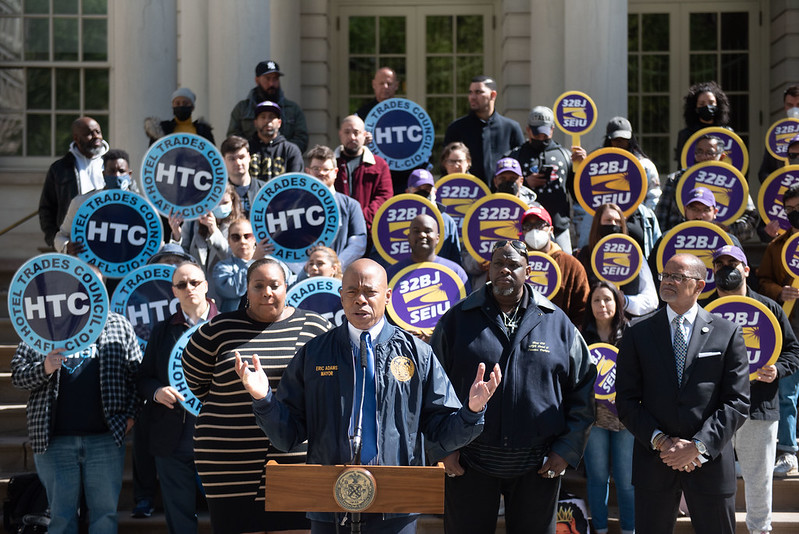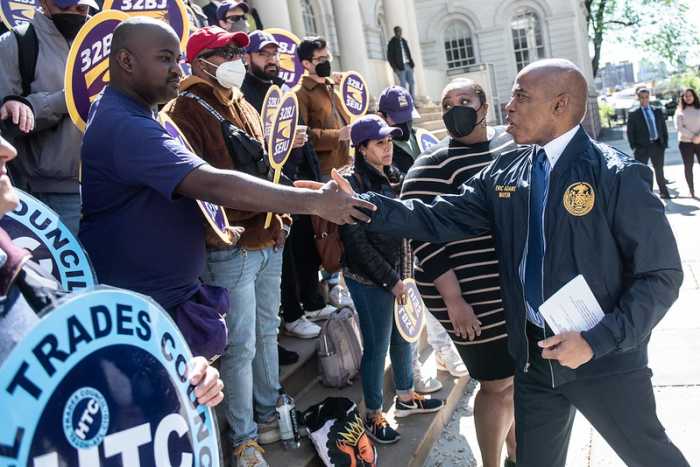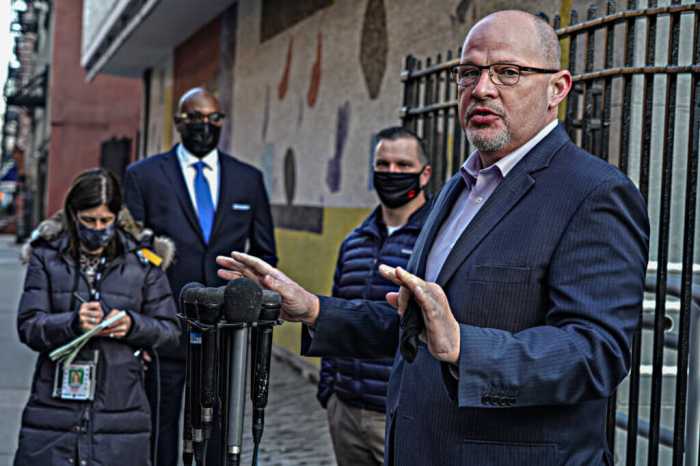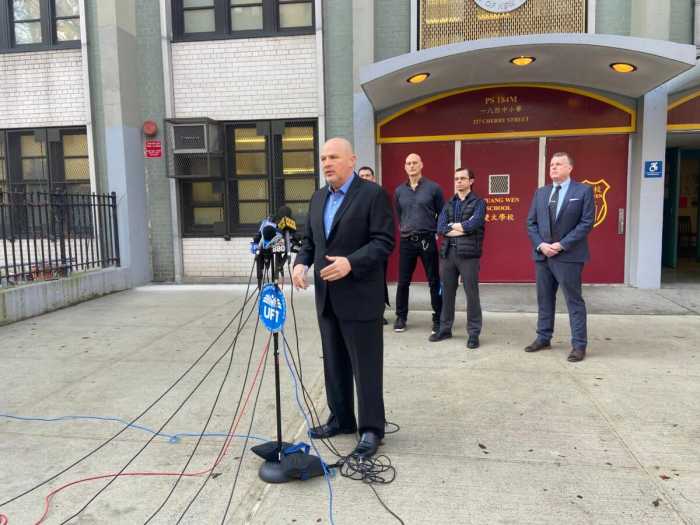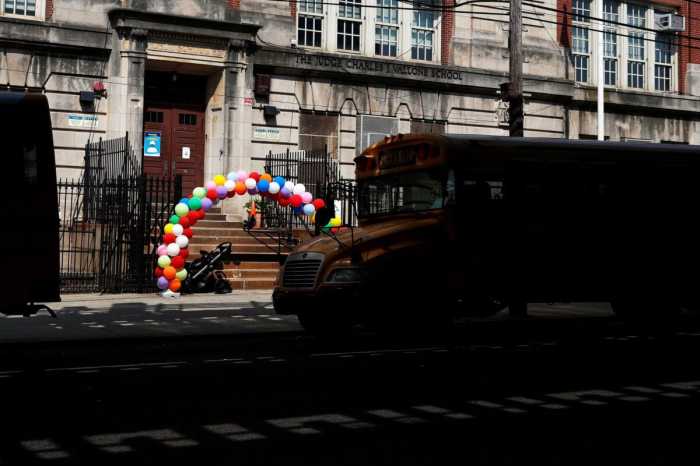After weeks of negotiations and working over Memorial Day Weekend, state lawmakers finally reached a deal Tuesday to extend Mayor Eric Adams’ control of the city’s public schools for the next two years.
While the deal on mayoral control will most likely pass later this week, before the state legislative session ends on June 2, the two year extension of the policy falls short of the four years that Adams and Gov. Kathy Hochul have lobbied for over the past few months. A representative with Adams’ office told PoliticsNY his team is reviewing the legislation and is still in conversations with state lawmakers.
The deal also includes other significant changes to mayoral control like increasing the size of and parental representation on the Panel for Education Policy (PEP). Additionally, it includes a bill that would limit public school class sizes over the next five years.
State Senator John Liu (D – Queens), who sponsored the bills and chairs the state Senate’s New York City Education Committee, told PoliticsNY this is a good deal for Adams, even though he didn’t get the four year extension he wanted.
“The mayor asked to retain control and he does,” Liu said. “Specifically, retaining a majority of the PEP appointments And, more importantly, the unilateral hiring and firing of the school’s chancellor.”
Assembly Committee on Education Chair Michael Benedetto (D – Bronx) said that while the mayoral control deal is by no means a perfect proposal, it accomplishes the main goal of giving the mayor continued authority over the city’s public schools.
“When you have so many people with so many interests weighing in on a document, you’re gonna have certain compromises and people giving in on certain things that they would want,” Benedetto said. “But overall, I think it does what we intended to do. To continue with mayoral control. And at the same time, they increased the voice of the parents in New York City. And at the same time, looking ahead with the class size reductions that we’re going to be doing over the next several years, ultimately to help students learn better.”
Benedetto, however, said he personally would’ve preferred mayoral control be extended for three years instead of two.
“I think I would have preferred there to be three years, rather than the two that is proposed,” he said. “But by and large, the bill does does the job.”
United Federation of Teachers President Michael Mulgrew, released statements in support of both the continuation of mayoral control and class-size reduction bill.
“The legislation introduced by NYC Education Chair State Senator John Liu and Assembly Education Committee Chair Michael Benedetto will increase parental involvement in the governance of our public schools, and will guarantee more independence for the members of the Panel for Educational Policy — both important priorities for the city’s teachers,” Mulgrew said.
First established in 2002 by then-Mayor Michael Bloomberg, mayoral control is a policy that gives the mayor almost complete authority over the city’s public schools by allowing the mayor to choose both the school’s chancellor and nine of the 15 PEP members. The policy has been renewed by the state legislature several times over the past two decades.
Since taking office, Adams has consistently said that the continuation of mayoral control is key to accomplishing he and Department of Education Chancellor David Banks’ education goals. Adams has also maintained that he and Banks are best suited to steer the system because they both attended city public schools themselves.
Besides the two year extension of the policy, the most major change is a restructuring of the PEP intended to give parents more of a say in how the schools are run. State lawmakers are proposing increasing the size of the board from 15 to 23 members.
Appointments given to Community Education Council (CEC) presidents will be increased from two to five, giving one from each borough a spot on the panel. The mayor will get 13 appointments, but four of them have to be parents, a requirement that didn’t exist before, Liu said. Of those four, one must be the parent of a multi-language learner, another has to be a District 75 parent and a third must have a child with an individualized education program (IEP).
Members appointed by CEC presidents will have one year terms, which are renewable without limit. Liu said that stands in contrast to the current system, “where PEP members serve at the pleasure of their appointer and could be removed at any moment.”
On the class-size reduction bill, Benedetto said this is something many members of his conference have wanted for several years and this was the chance to finally get it done. Over the next five years, the bill would cap class sizes for kindergarten through third grade at 20 students, fourth through eighth grade at 23 students and high school at 25 students.
Leonie Haimson, founder and executive director of the non-profit organization Class Size Matters – which has long pushed for reductions in public school class sizes, said if the bill passes and is signed by Hochul, it will transform the learning opportunities for the city’s public school students. Specifically students with disabilities and those learning to speak English, who have been disadvantaged by city class sizes 15 to 30 percent larger than those across the rest of the state.
“The class size caps are very achievable,” Haimson said. “But at the same time, will really allow, for the first time, all kids to get the support and feedback from their teachers that they really need. Especially high needs kids – kids of color, kids with disabilities, English language learners – who make up the majority of children in the New York City public schools.”


